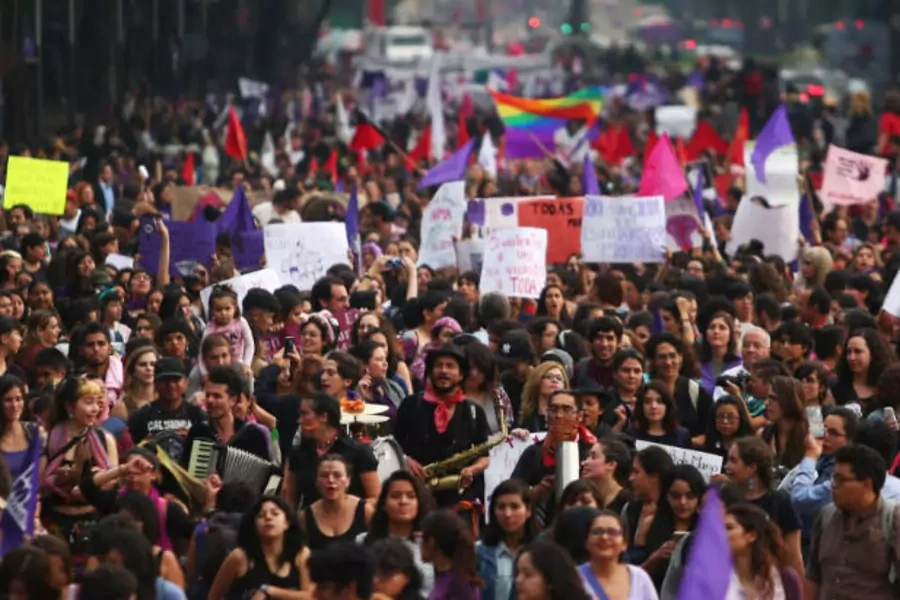Women Around the World: This Week

More on:
Welcome to “Women Around the World: This Week,” a series that highlights noteworthy news related to women and U.S. foreign policy. This week’s post, covering from March 4 to March 10, was compiled with support from Becky Allen, Anne Connell, and Alyssa Dougherty.
International Women’s Day
On Wednesday, March 8, the world marked International Women’s Day, an internationally-celebrated holiday dedicated to recognizing the social, political, economic, and cultural contributions women have made globally and highlighting the inequalities that remain. This year’s celebration was marked by an historic number of events, marches, and protests. In Paris, unions, student organizations, and women’s associations held a women’s strike starting at 3:40 p.m., a reduction in hours meant to symbolize the 26 percent gender pay gap in France. In Buenos Aires, tens of thousands marched to combat the scourge of violence against women, which kills one woman every thirty hours in that country. In Montenegro, hundreds of women rallied for better state aid for mothers. And in the United States, rallies and events were held in conjunction with the "Day Without a Woman" strike, meant to highlight women’s crucial contributions to the U.S. economy. In a positive trend, some governments chose to mark International Women’s Day by announcing plans to improve conditions for women: in Iceland, for example, the government announced a strategy to eliminate workplace inequalities by 2022, and in India, Prime Minister Narendra Modi appeared with local women’s activists in support of a national campaign to improve rural sanitation.
Women’s parliamentary participation inches up
This week, the Inter-Parliamentary Union (IPU) issued a report finding that women’s participation increased incrementally in recent years, rising from 22.6 percent in 2015 to 23.3 percent in 2016. Regionally, the greatest gains occurred in the Pacific, but moderate progress in recent years across Asia was undercut by the slowing pace of change in India. The report highlights gender quotas as an effective tool to increase women’s political representation, but notes that gaps remain: last year, Liberia was the only country in the world to pass new quota legislation at the parliament level, and implementation has been inconsistent in many countries. IPU Secretary General Martin Chungong underscored the importance of inclusive national politics, arguing that “parliaments are crucial to…strengthening the policies and legislation needed to meet the goal of gender equality and women’s full and equal participation at all levels by 2030.”
Global legislation on sexual assault
A new study of eighty-two legal systems around the world reveals significant gaps in policies to prevent and respond to sexual violence. The report outlines seven trends that are pervasive around the globe, including laws that permit marital rape, provide loopholes, or require inordinately cumbersome evidence for prosecution. In eight countries surveyed, for example, perpetrators of rape may be exonerated if they marry the survivor, even in cases of rape of a minor. In five countries, a settlement may be agreed upon by families in place of punishment, and in nine countries, verbal forgiveness by a victim will terminate a case and prevent penalty. Sexual violence around the world has been correlated with risk of HIV, increased rates and infant and child mortality, and economic loss.
More on:
 Online Store
Online Store